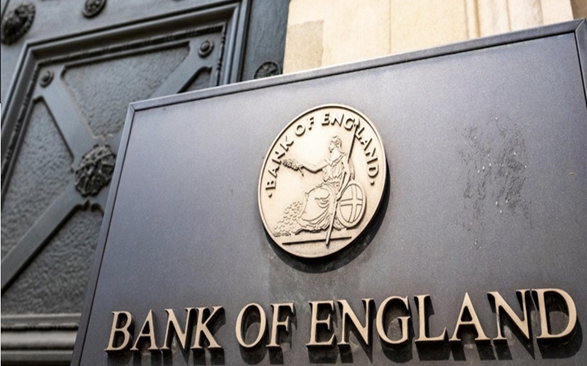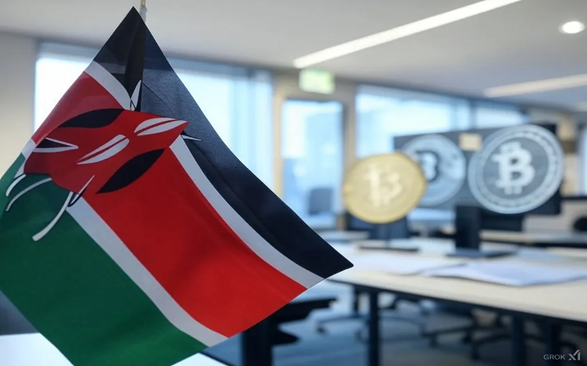Crypto asset, digital asset, virtual asset, or other nomenclature you choose, this is the product of blockchain technology. Described as a “trustless technology” and “the second generation internet”, blockchain technology is enabling a transition from an internet of communication to an internet of value.
For the first time in the history of mankind, anything of value from intellectual property to real estates, gold to money, stocks, can be:
- (i) represented in a digital form and
- (ii) owned, stored, or transferred digitally and securely without the ability of being reproduced – as an ebook would, for example – when digitally transferred.
When you have such innovation available to anyone, anywhere, and anytime, one thing is bound to happen – disruption. This disruption is already transforming the way that individuals, organizations, and governments own, store, and transfer value in the digital economy today.
Consider, for example, the first and well-known application of blockchain technology, Bitcoin, the peer-to-peer electronic cash system.
Today, bitcoin is the most popular cryptocurrency or decentralized currency out there, witnessing increasing adoption across the globe, including Africa.
I think it is vital to point out that whether it is in Nigeria or South Africa, Kenya or Ghana, the reality of the increasing level of crypto-asset adoption in Africa cannot be wished away, even if denied. Globally, beyond individuals or retail investors, institutional investors are gradually taking interest in crypto assets. So the way forward is not scaremongering or bullying.
One tested and trusted answer is embracing open, informed, and responsive engagement with stakeholders about the opportunities and threats associated with crypto assets and the best approach to adopt in order to support innovation, protect consumers, and safeguard investments.
We cannot afford to continue to cage opportunities in the name of regulation while the risks associated with having the caged bird fly, and are published all over our faces.
What I call regulatory bullying or scaremongering in Africa – typically an unconscious and reflex action especially in this part of the world – is not going to be the answer any longer, if it ever was. More than ever before, innovative, adaptive, or developmental regulation is in high demand but in short supply.
Why the Draft Declaration by the Financial Sector Conduct Authority (FSCA) in South Africa is a Welcomed Development
Announced in a press release by the FSCA on 20 November 2020, the draft declaration classifies crypto assets as a financial product in South Africa. The FSCA, the body responsible for regulating market conduct of financial institutions in South Africa, is well-positioned to introduce the draft declaration. Essentially, the approach adopted in the draft declaration is that, in mitigating risks associated with crypto-assets adoption, regulators and stakeholders should adopt a regulatory approach that will not end up stifling innovation in the emerging crypto-assets market. This tends to encourage an adaptive regulatory approach, compared to the more common restrictive approach most players are now used to in most African countries.
Many players in the crypto-assets space may be wondering how the FSCA draft declaration will impact South Africa’s adoption of crypto assets in the financial sector.
Financial products and financial services providers in South Africa, including banks, insurers, pension-funds managers, and market-infrastructure providers, will be expected to officially recognize crypto assets as a financial product and adopt policies that will help mitigate the risks associated with them. Risk disclosure remains a major concern in the crypto-asset market. Transactions appear to be completed without compliance with standard practices.
If the draft declaration is adopted, the level of risks management in relation to crypto assets is expected to be boosted. Players in the crypto assets ecosystem will be obliged to become more accountable, more secure, and more transparent.
This is good.
Without doubt, it has the tendency of attracting institutional investors to the crypto-assets market in South Africa, if well-implemented without being overly restrictive.
Also, rather than continue to wait for the relevant regulators to regulate crypto assets in South Africa, the FSCA will get licensed financial institutions in the country to basically open shop to crypto-asset dealers and service providers by treating their crypto assets as financial products.
Though the FSCA treatment of crypto assets as a financial product in South Africa compares, in some respect, with the recent statement published by the Securities and Exchange Commission (SEC) in Nigeria, they are not the same.
First, while the draft declaration is published by the FSCA – the market conduct regulator of financial products and financial services providers in South Africa – the Nigeria statement is published by the investments and securities regulator in Nigeria, the SEC. The implication is that while the draft declaration, if eventually adopted, will apply to the market conduct of all financial institutions in South Africa in relation to crypto-asset treatment, the SEC Nigeria statement only applies to entities that offer products and services that fall under SEC’s regulatory purview.
Second, the definition or meaning of “crypto assets” under the draft declaration is different from its meaning under the SEC statement, thus affecting both classification and treatment in both South Africa and Nigeria. Under the draft declaration (which relies on South Africa’s Crypto Assets Regulatory Working Group’s Consultation Paper on Policy for Crypto Assets), the meaning of “crypto assets” is broader, encompassing digital representations or tokens that are issued electronically by decentralized entities, have no legal-tender status, and are not considered electronic money. They can be used for payments, investments, and perform various other functions. However, under the SEC Nigeria statement, a “crypto asset” has a narrow meaning. “Crypto asset” is given to mean a non-fiat virtual currency. This includes Bitcoin, Ethereum, Litecoin, etc. For a broader and more encompassing meaning, “digital assets” is used by SEC to mean the entire assets provided by distributed ledger technology, including blockchain.
Third, while the FSCA draft declaration has not specified how crypto assets would be treated by the various regulatory agencies in South Africa under applicable legislation, the SEC statement specified how it would treat crypto assets in Nigeria. Specifically, the SEC statement made it clear that crypto assets would be treated as commodities, if traded on a recognized investment exchange or issued as an investment. This automatically brings such crypto assets under existing SEC Nigeria rules and regulations and any other subsequent rules SEC may make in future. In contrast to SEC’s treatment of crypto asset above, FSCA’s draft declaration left specific treatment of crypto assets in South Africa to relevant regulators to absolutely determine. This is understandable since FSCA only has authority over market conduct for consumer protection purposes. It does not have regulatory powers over whether a crypto asset would be treated as a legal tender, security, or taxed.
Before the crypto-asset community gets too excited over the draft declaration, it is worth re-emphasizing the point above.
While the draft declaration by the FSCA broadly states that crypto assets will be treated as financial products, it does not specify to regulators – such as the South Africa Reserve Bank (SARB) for example – how SARB will treat crypto assets under the law establishing the SARB. FSCA did not pretend that it had the powers to do so. That would be beyond FSCA’s authority. This is why – as stated in the FSCA press release announcing the draft Declaration – the FSCA made it clear that the draft declaration in no way impacts the status of crypto assets in the context of other laws nor attempts to regulate or legitimise crypto assets in South Africa. This is unlike the statement by SEC Nigeria which essentially recognized crypto assets as a class of digital assets and introduced SEC’s three-prong approach for regulating them in Nigeria.
Lastly, the draft Declaration Lis a draft awaiting review by stakeholders and members of the public, while the SEC publication is a position statement that has been released to the public.
Crypto-asset adoption in Africa and regulation: Finding a balance between innovation, consumer Protection & investor safety
In Africa, seemingly moving in the opposite direction to circulars and public warnings by regulators about the risks of dealing in virtual assets, more and more members of the public – particularly young Africans – are adopting virtual assets in their daily lives as if their lives depended on it.
In a continent with predominantly young people hungry for opportunities in the midst of economic hardship and sometimes crippling business environments, maybe their lives really depend on it.
Rising unemployment, political instability, poor infrastructure, and inconsistent and largely overly conservative policies often combine to ensure a lack of an enabling environment and global competitiveness in Africa. Consequently, from payments to remittances, investments to loans, the rise and rise in crypto-asset adoption across Africa, especially in Nigeria, Kenya, South Africa, and recently Ghana, appears to be unstoppable. In a continent where more than half of its adult population remain unbanked, crypto-asset innovators are increasingly beating their chests that they – like their other fintech counterparts – are also boosting financial inclusion in Africa.
Decentralization, crypto-assets innovators argue, will help to achieve faster a borderless, digital, one Africa market – the Africa where there is a democratization of participation in an increasingly decentralized economy, enabled by the mobility of money and other economic values across African countries, unlocking opportunities for Africans.
But regulation is getting in the way of innovation, as it often does. And understandably so.
The twin consideration of consumer protection and investor safety appears to be keeping innovation waiting. Consumer protection is vital for any industry to thrive. Bad practices and bad actors are not healthy for any industry. In the crypto-asset space, bad practices and bad actors are unfortunately not in short supply.
Pretend crypto-asset providers are also not in short supply. From pyramid schemes to Ponzi schemes, fraudsters are lurking in the space. And attracting investments – particularly from institutional investors – will be difficult without investor safety. This is why regulators are hardly in a hurry to allow innovators to break legs in the space. As much as innovations can open up new opportunities in the financial sector in Africa, it will not be in anyone’s interest if the risks, where avoidable or minimizable, are left unaddressed. This is where regulation comes in. I believe that most innovators are on the same page with regulators on this.
What appears to be a major regulatory challenge is how many regulators put innovators in a state of uncertainty, with little or no regulatory guidance. This uncertainty is not healthy in any ecosystem. Sometimes, it results in a stunted growth in the industry. Sometimes, it dis-incentivizes investors from coming into the market, and sometimes, it kills innovation outrightly.
The casualties?
Innovations – particularly indigenous innovations. The reason is obvious. While foreign innovators may move to Luxembourg, Malta, Switzerland, and similar jurisdictions considered friendly to their innovations, most local innovators hardly have the resources to move out of Africa.
So I think that, relatively, regulatory approaches have largely remained overly cautious, consequently stifling innovation of crypto assets in Africa. So any semblance of an adaptive, developmental, or friendly regulatory approach makes big headlines in the blockchain & crypto space. The situation is not very different outside Africa though, especially in jurisdictions such as China and the United States. But regulators in Africa must learn to see their roles as ecosystem builders, not just enforcers. This approach will put regulators in a better position to understand the market, understand the place of innovation, how policy can make innovation thrive, and the role of regulation in sanitizing the industry.
Going forward with regulating crypto assets or mitigating crypto-asset risks
While innovators want an enabling environment for their innovations to thrive, regulators want to ensure that the environment is not only enabling but also safe for consumers and investors. The effort to strike a balance between these two vital concerns continues to throw up challenges in the space.
First, considering the fundamentally distinct structure of crypto assets, I would recommend that in managing risks associated with crypto assets in the financial sector, regulators should avoid a blanket adoption of the conventional risk-control mechanisms and frameworks applicable to traditional financial institutions. There is a need to appreciate the decentralized technology structure, model, and market of crypto assets. Simply applying existing frameworks originally developed for a centralized technology structure, model, and market will not be very healthy, to say the least. While I do not make an argument that blockchain technology be regulated (since it is services that can be regulated, not the technology enabling the services), regulators need to develop or adapt frameworks that consider the distinctive features of crypto assets. This requires good thinking. It also requires multi-stakeholder engagements.
Second, beyond the circulars, public notices, and warnings about how crypto assets are susceptible to fraud and can amount to Ponzi schemes, I think it will be equally useful – if not more useful – when regulators in Africa also invest some time and resources in educating people about innovations that have the potential of impacting the industries they regulate. Particularly in Africa, we hardly see a lot of this. For instance, I’m almost certain that the world will not come to an end if, for example, the Central Bank of Nigeria (CBN) released a publication detailing its understanding of blockchain technology, how it works, and its possible use cases in the banking sector without stating any regulatory position. Will the world come to an end? I don’t think so. In fact, the world may add a few decades to its age, and so would the CBN Governor.
This is the Fourth Industrial Revolution. This is the age where decentralization of data will increasingly be the case in a digital, global economy. This is the age of adaptive, developmental regulation. The age when know-it-all, do-it-all, and catch-them-all regulators are no longer fashionable.
This is the age of collaboration!
Credit: Written by Senator Ihenyen, this piece was first published on Bitcoinke.io, 24 November 2020.
Discover more from Crypto Asset Buyer
Subscribe to get the latest posts sent to your email.




